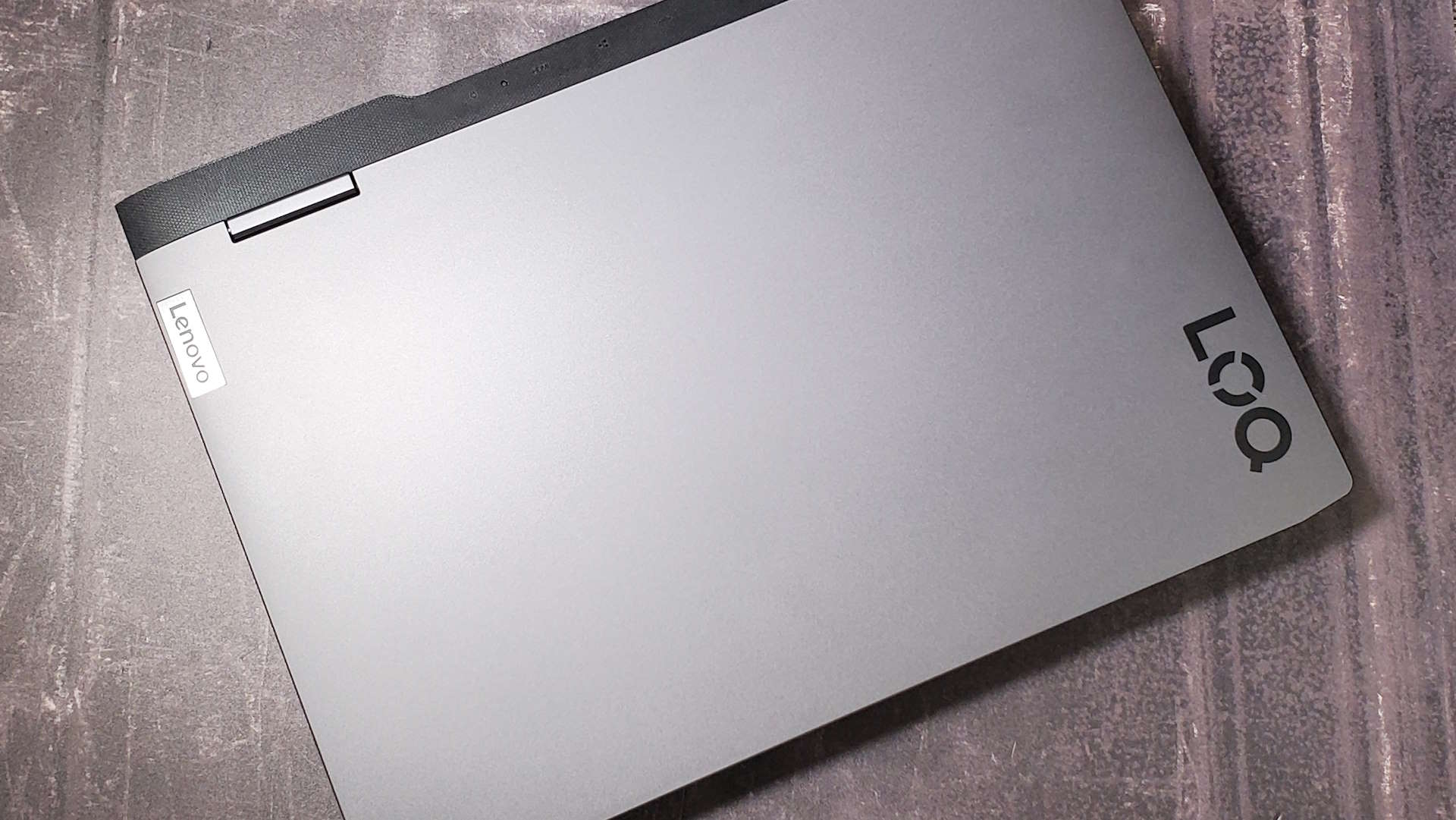Our Verdict
The LOQ 15 punches above its weight class for an RTX 4050 system, and it has genuine Lenovo laptop DNA inside it. But at full price this is far too much money considering the weaker spec compared to other, similarly priced gaming laptops.
For
- 95W RTX 4050 does well against RTX 4060
- Looks surprisingly premium
Against
- 8GB is too little memory in 2023
- 512GB SSD is pretty weak too
- Really dull screen
- Poor battery life
PC Gamer's got your back
The gaming laptop space is complex. It's full of different specs and price points and brand names, and it can be tough to see where a new machine fits in all this. And when Lenovo first announced its LOQ range of affordable laptops I figured it would all be pretty straightforward.
Where the Legion machines are all solid chassis and high-level pricing and specs sheets, the Lenovo LOQ range would be cheaper, less premium, and come with a lower level of hardware for a bargain price. I mean, after all, the Legion machines are some of the most affordable serious gaming laptops around.
But the Lenovo LOQ 15-inch range, championed here by a system comprising an AMD CPU and Nvidia RTX 4050 GPU doesn't actually make a lot of sense at full price. Particularly in a world where you can bag the Legion Slim 5, with the same CPU and GPU combination for only around $100 more depending on what sales are on at any given time.
Right now, you can pick up this particular spec for $750, which certainly makes it more tempting than its standard $1,100 sticker price. But when you discount the discounted sales cost of the two machines, they're rarely that far from each other in terms of full price pricing.
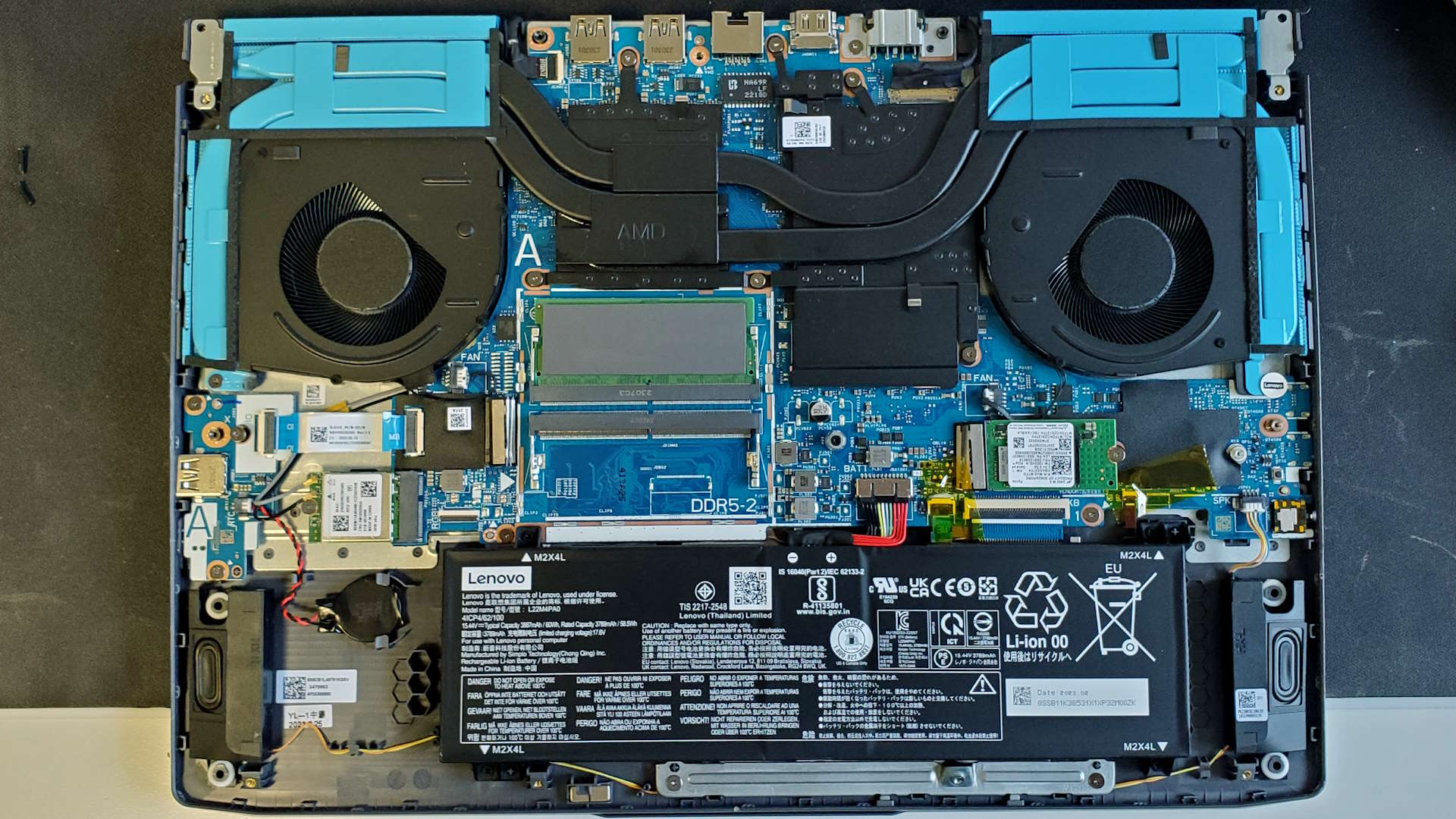
CPU: AMD Ryzen 7 7840HS
GPU: Nvidia RTX 4050 (95W)
RAM: 8GB DDR5-5600
Storage: 512GB SSD
Screen: 15-inch IPS @144Hz
Native resolution: 1920 x 1080
Connectivity: WiFi 6, Bluetooth 5.1, 1x USB-A 2.0, 2x USB-A 3.2 Gen 2, 1x USB-C 3.2, Ethernet, HDMI 2.1, 3.5mm audio
Price: $1,100 | £1,120
But they are very different in terms of overall quality. The Legion Slim isn't exactly slim, but it's a really nice chassis, with a good screen, and good cooling. Our only issue is the battery life is pretty ropey, but that's the same with most gaming laptops, and most especially the latest Lenovo systems. The LOQ, on the other hand, is certainly a lot more chonk.
It's not super-bloaty, and actually looks and feels a lot more premium than I was expecting it to given the budget aim. There are affordable Gigabyte and MSI machines that really do seem way cheaper when you flip open the lids, but compared with its similarly priced sibling the build quality of the LOQ is quite different. And quite plasticky.
It is still an effective chassis, able to keep the 95W RTX 4050 GPU running at its peak wattage and therefore get mighty close to the sort of gaming performance we've seen from 75W RTX 4060 laptops, such as the Gigabyte G5, and beating the weak-heart 45W RTX 4060 in the MSI Cyborg 15.
And honestly that's a bit of a surprise, and almost a bit frustrating. It's another example of why it's tough to trust the performance of a modern gaming laptop just based upon what the manufacturer is telling you is jammed inside it. We've had issues with RTX 4090 laptops performing worse than RTX 4080 machines, and here we're seeing an RTX 4050 shining brighter than at least one RTX 4060 model.
On the 1080p screen the LOQ is sporting that means you're actually getting relatively playable frame rates out of the latest games. Metro Exodus Enhanced was delivering 60 fps, while Hitman and Horizon Zero Dawn will get you up to 100 fps and beyond. Cyberpunk 2077 was the test which highlighted where the actual hardware difference is between the RTX 4050 and RTX 4060 as both the MSI and Gigabyte machines were able to easily outpace the LOQ.
Where the LOQ does shine, however, is in the CPU tests. Despite having a lowly 8GB of RAM—legitimately not enough in today's market or for this amount of money—the AMD Ryzen 7 7840HS is an outstanding mobile chip and that shows in the relative benchmarks. Compared with either Core i7 or Core i5 chips in the competing machines the AMD processor again shows the red team has got things sewn up in mobile.
But it's not just the Zen 4 cores that make this chip such a good laptop part—it's also sporting the full Radeon 780M integrated graphics. That's the same iGPU that powers the best gaming handhelds today, and can deliver genuine 1080p gaming frame rates.
Though not here. I was hoping I'd be able to disable the RTX 4050 and just use the integrated Radeon core when away from a plug socket to provide a bump to the battery life without losing a ton of performance. But the frame rates on offer here are way down on the Framework AMD mainboard which uses the same 780M chip in a lower power CPU, and below any of the handheld gaming PCs, too.
So, what gives? Well, it's that paucity of memory which really blows the iGPU performance, and makes the LOQ's really only good for browsing, etc. if you disable the Nvidia graphics card to boost battery life. And it does need boosting because that's another failure for Lenovo's laptop specs here, because this machine only managed a paltry 45mins in the PCMark 10 gaming battery life test. Which is pretty woeful if you hadn't guessed.
I'm also not a fan of the screen. I get that it's a good place to save some cash, but this is a really dim, dull screen. The colours are incredibly subdued and it just doesn't feel that clear reading text on the desktop, either. This really is where the budget feel of the LOQ range really bites.
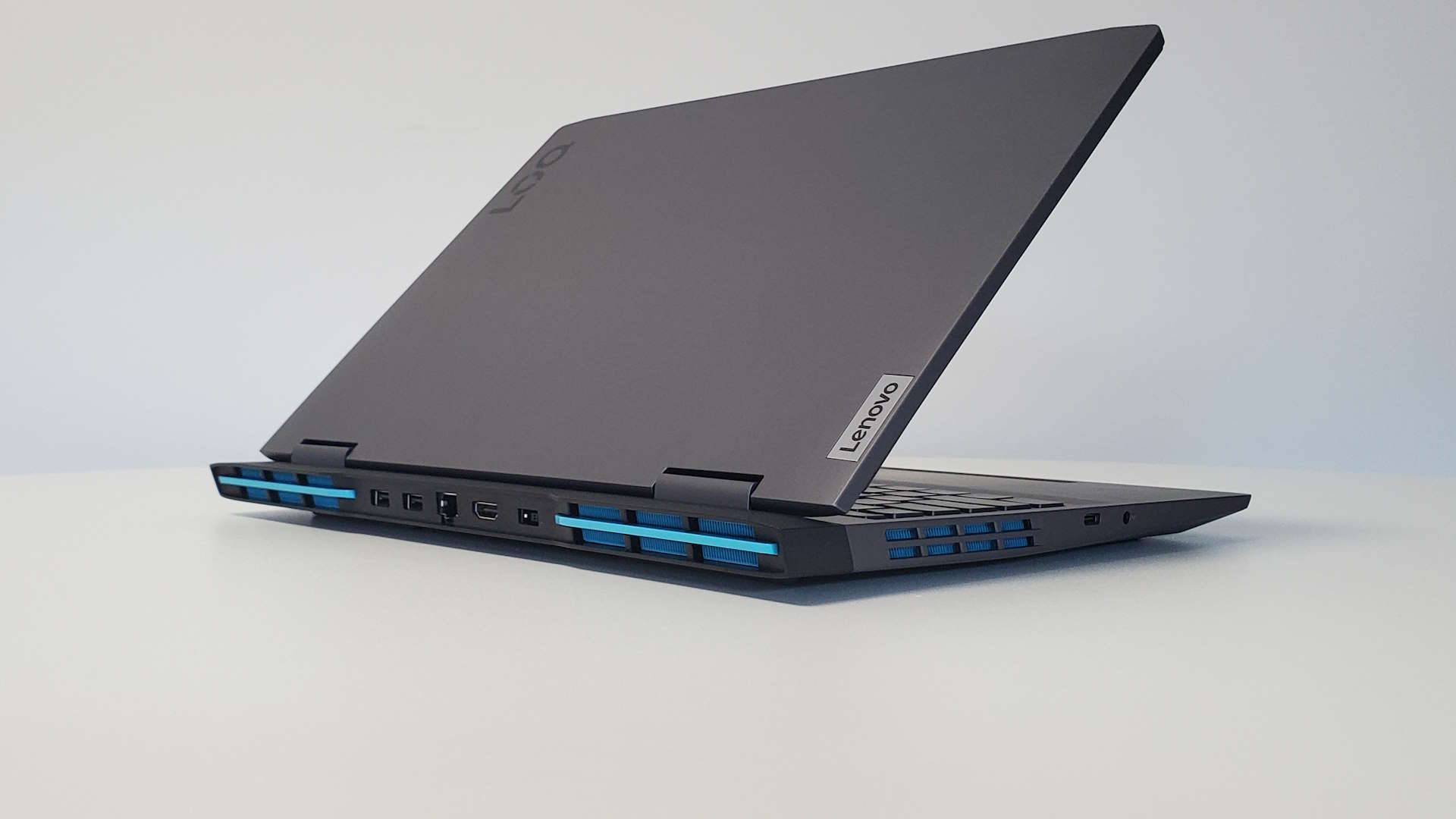
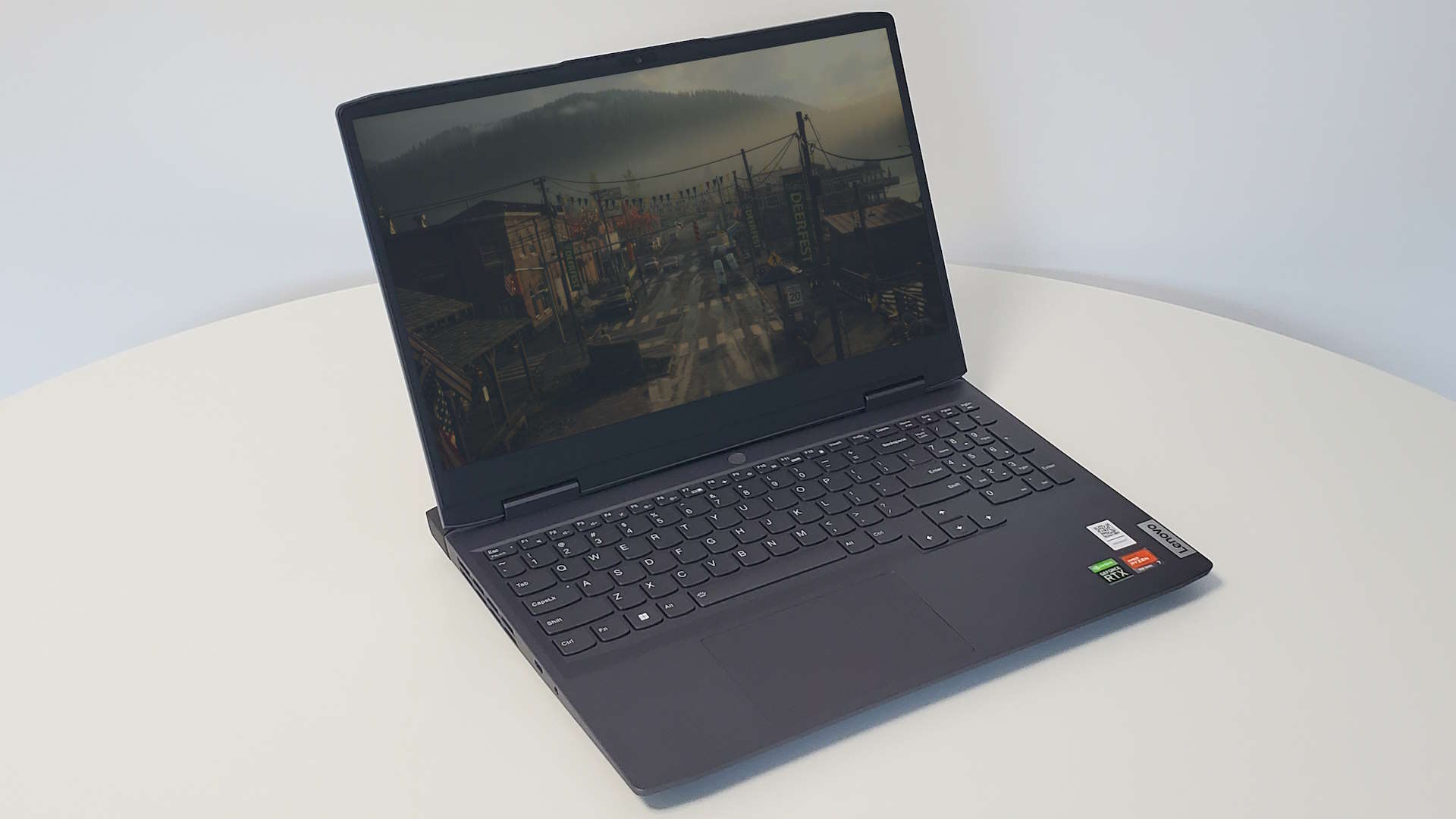
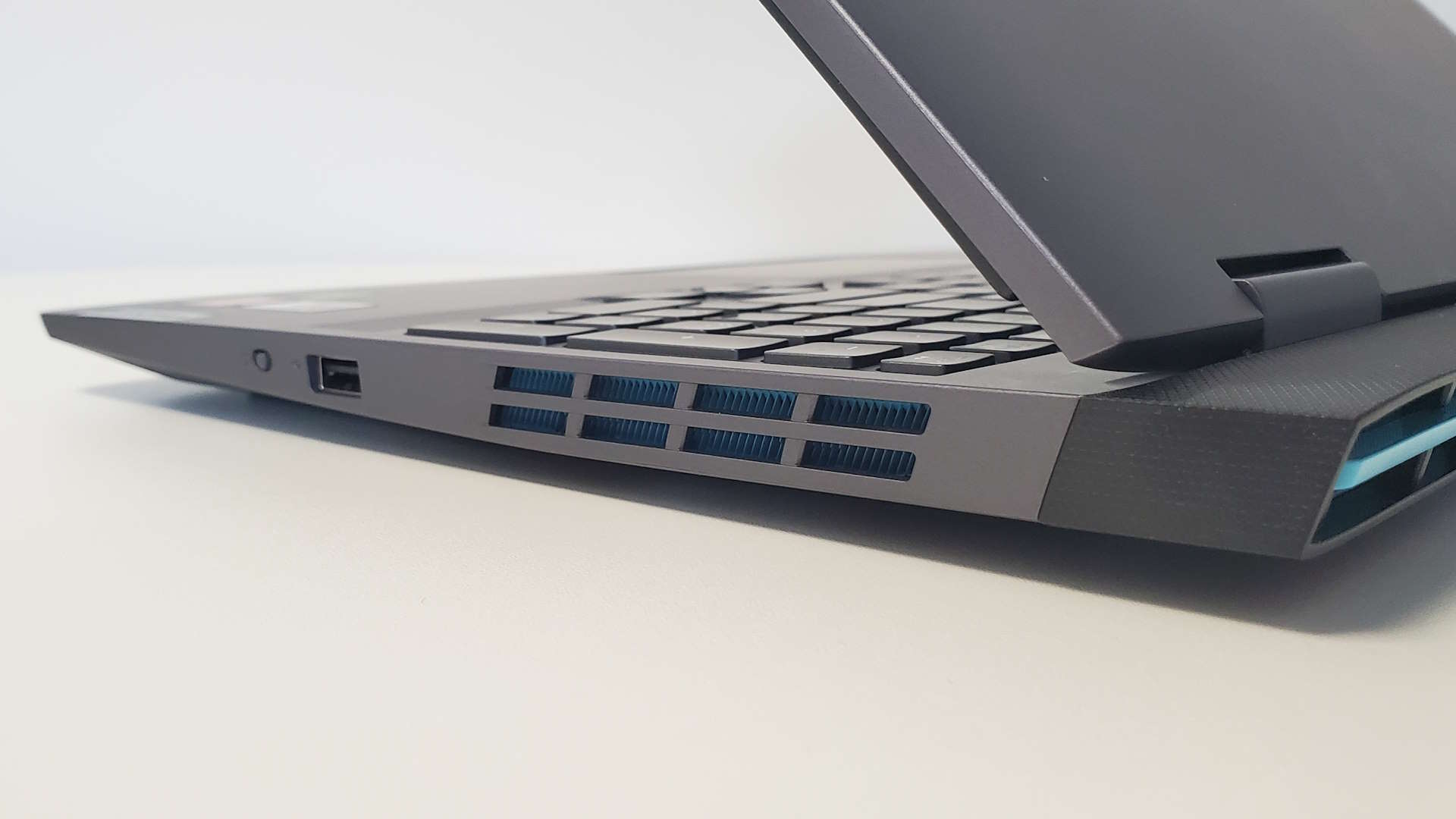
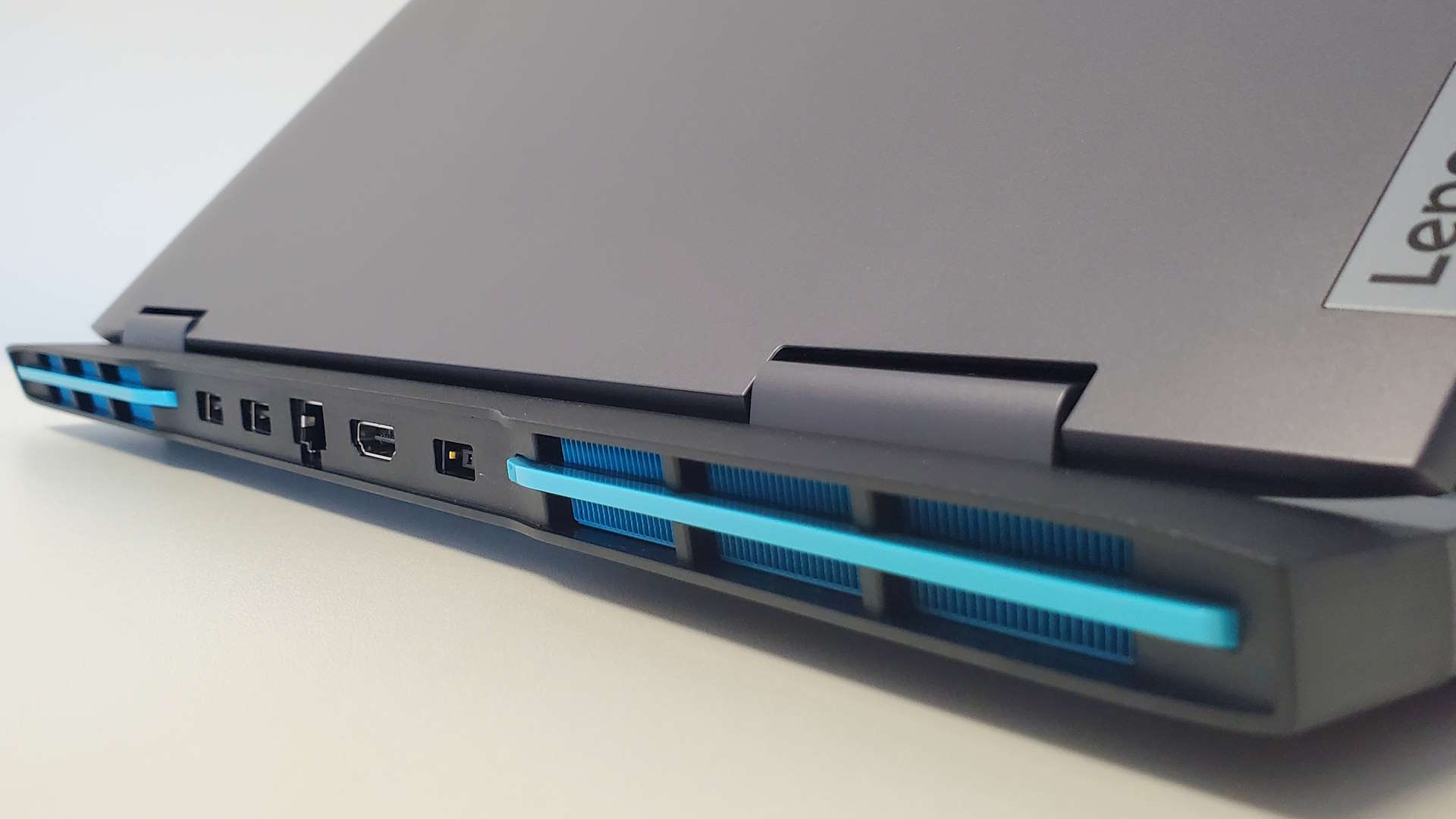
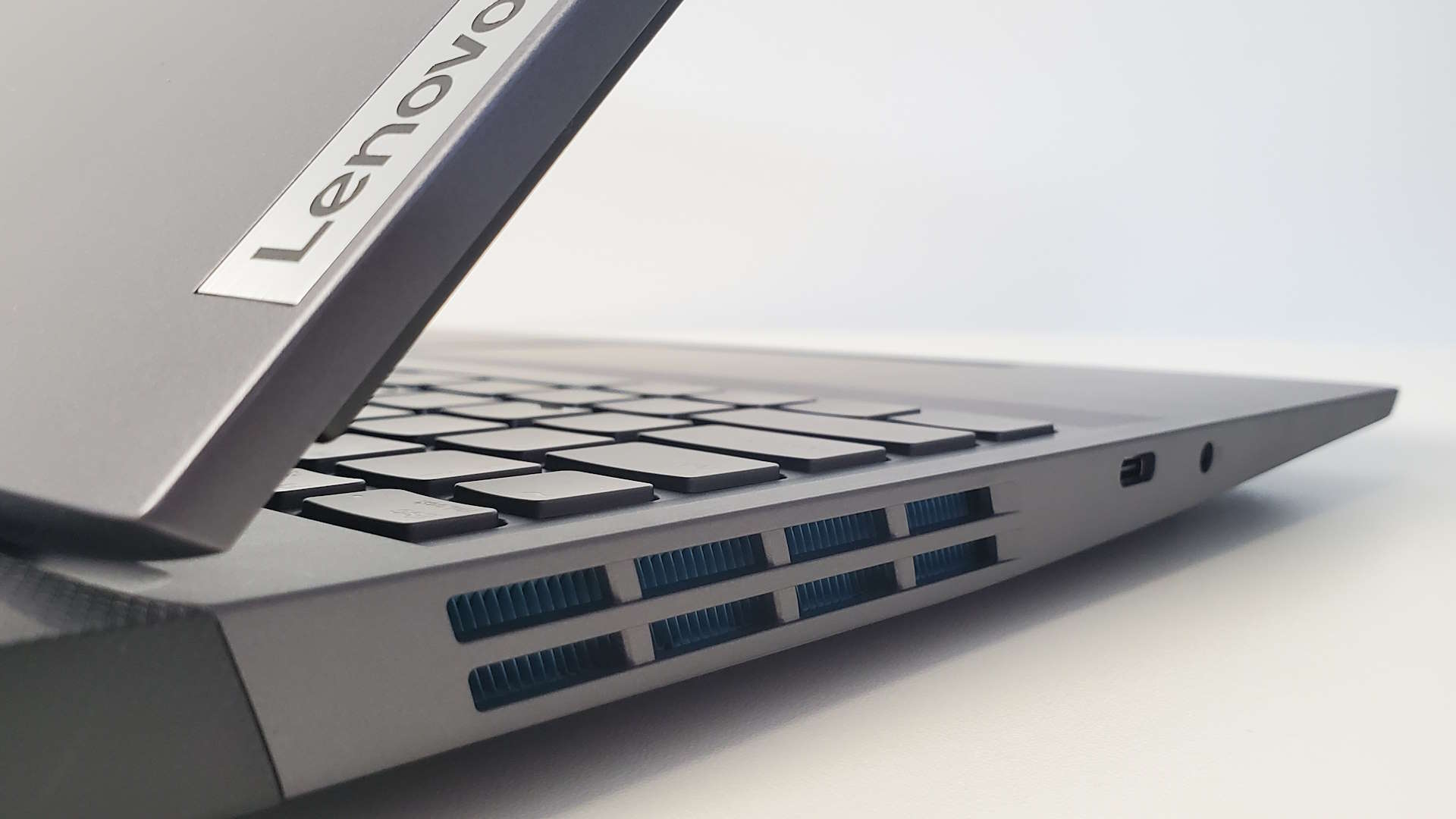
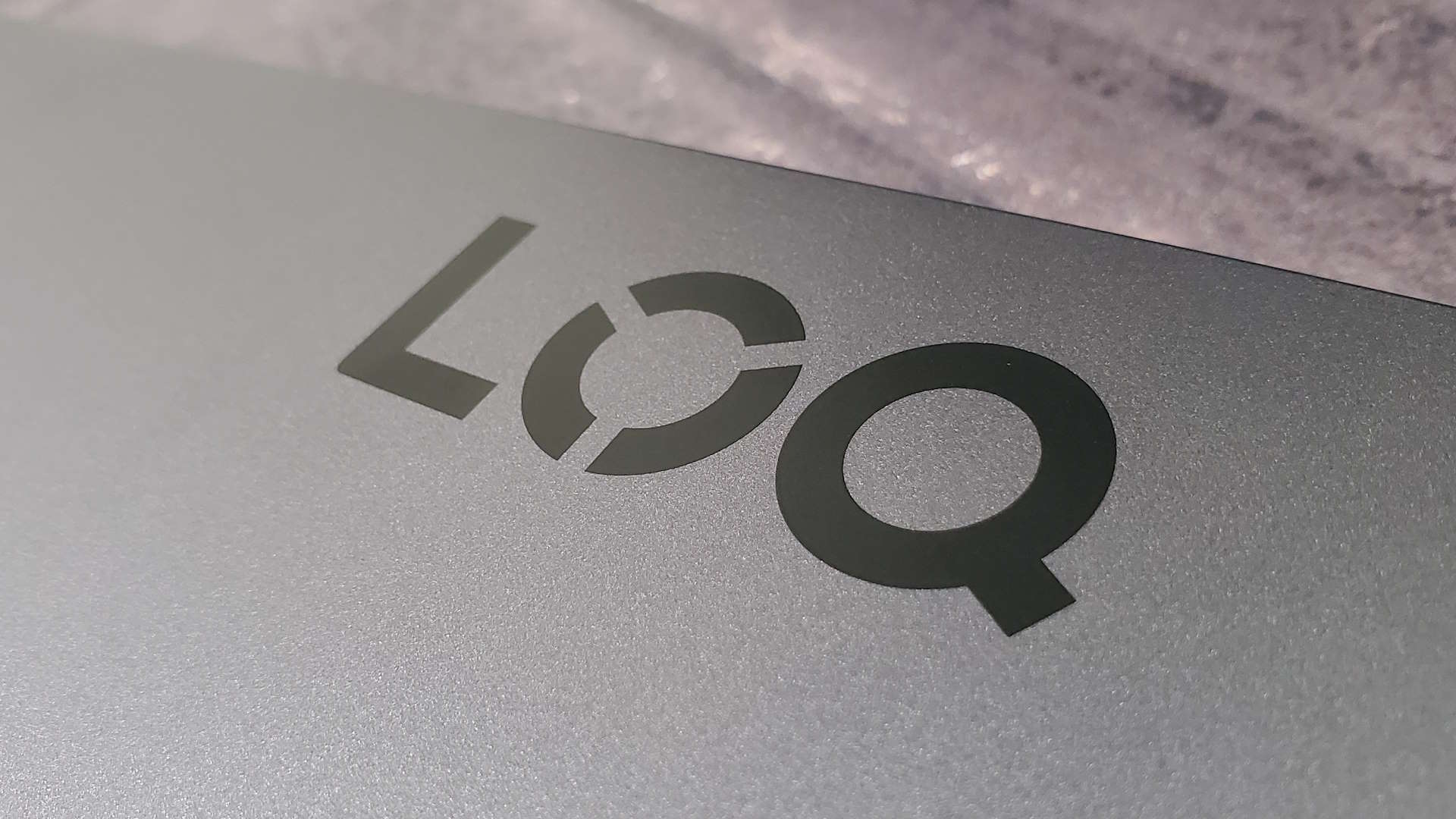
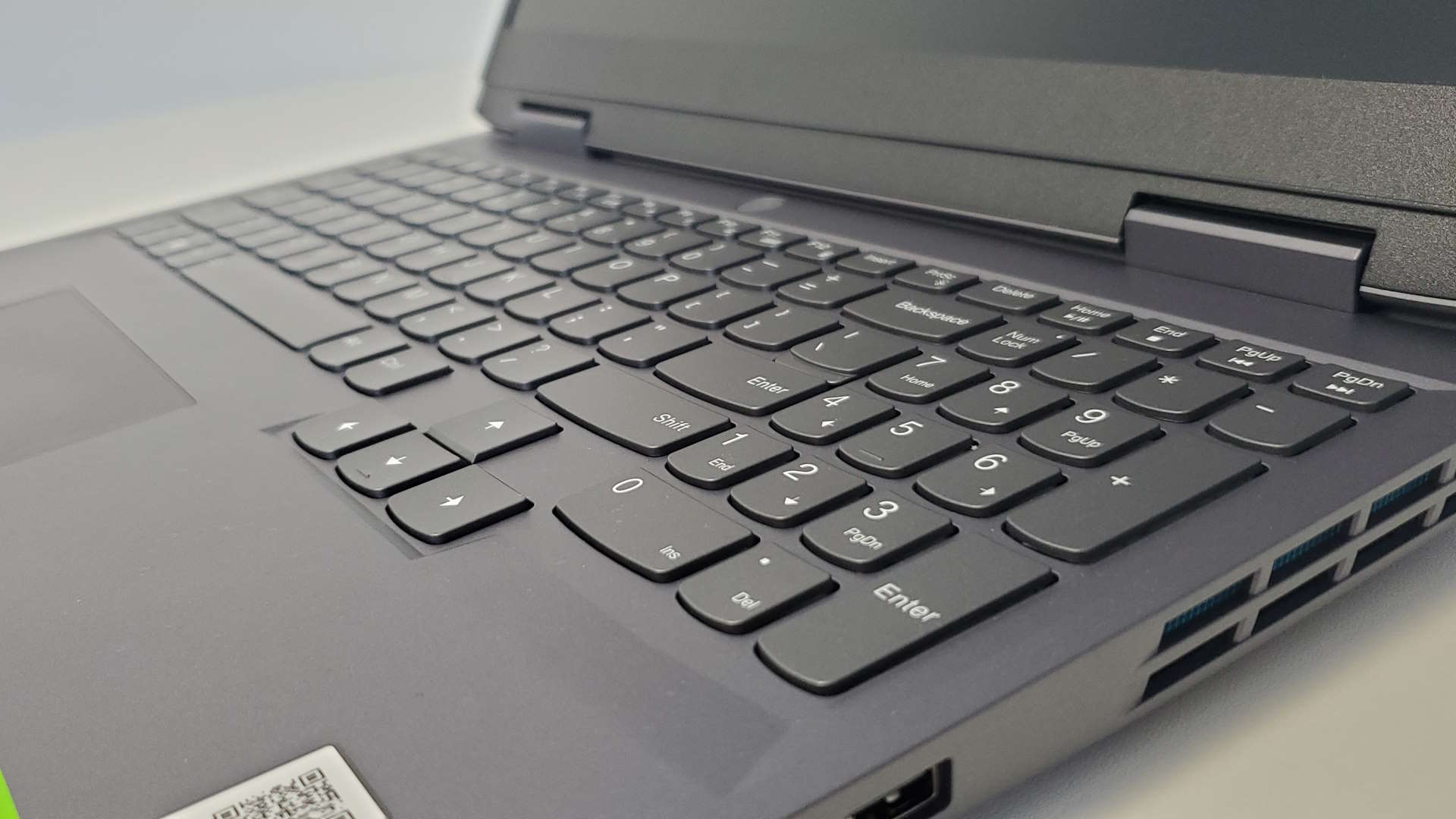
✅ You find a hefty discount: At full price the LOQ is too weak, but with a <$800 price tag you can almost overlook the small SSD and inadequate 8GB of RAM.
❌ It's full price: At the standard sticker price there are too many far better gaming laptops in range of your wallet.
❌ You do anything that needs memory bandwidth or capacity: With just a single 8GB stick of DDR5 inside it, you're getting half the potential memory bandwidth and a frankly inadequate amount of RAM.
At a decent sale price, such as its current $750 level, that does make it an interesting prospect. There are a couple of spare SSD slots inside, DDR5 RAM upgrades aren't as expensive as they once where, and Lenovo has actually made it relatively easy to get inside the chassis with just a cross head screwdriver. But when there is that level of discount on offer, there will be on other machines, making actual RTX 4060 systems a similar price and RTX 4070 laptops less than a grand. And those other options certainly make the LOQ less interesting.
But it does have Lenovo DNA: It looks the part, has the excellent Lenovo keyboard, with full numpad and a really nice typing feel, and is pretty quiet, too.
The combination of its slightly weaker spec and similar non-sale price to the clearly superior Legion Slim 5 makes it almost impossible to recommend the LOQ. It certainly feels like the budget option in the Lenovo range, but the pricing particularly of this spec I'm testing right now is hard to swallow. It's a rare miss for a company that has been nailing its recent laptop releases, but the LOQ isn't getting me recommendation for now.
The LOQ 15 punches above its weight class for an RTX 4050 system, and it has genuine Lenovo laptop DNA inside it. But at full price this is far too much money considering the weaker spec compared to other, similarly priced gaming laptops.

Dave has been gaming since the days of Zaxxon and Lady Bug on the Colecovision, and code books for the Commodore Vic 20 (Death Race 2000!). He built his first gaming PC at the tender age of 16, and finally finished bug-fixing the Cyrix-based system around a year later. When he dropped it out of the window. He first started writing for Official PlayStation Magazine and Xbox World many decades ago, then moved onto PC Format full-time, then PC Gamer, TechRadar, and T3 among others. Now he's back, writing about the nightmarish graphics card market, CPUs with more cores than sense, gaming laptops hotter than the sun, and SSDs more capacious than a Cybertruck.
